My Portugal Part 1: Country Guide
All you need to know about Portugal
Portugal is a stunningly beautiful country with a perfect climate (even though it has different climatic regions - the south is hotter, the north is colder and wetter) - it boasts around 300 sunny days a year!
Nature
Portuguese flora is lush and gorgeous, ranging from palm trees to cacti and exotic-looking flowers, flowering trees and bushes and aromatic eucalyptus trees. In gardens, and sometimes even by the side of a road you can see orange, lemon and fig trees.

Nature
Portuguese flora is lush and gorgeous, ranging from palm trees to cacti and exotic-looking flowers, flowering trees and bushes and aromatic eucalyptus trees. In gardens, and sometimes even by the side of a road you can see orange, lemon and fig trees.

Portuguese people are very friendly (except for some in government offices) and a lot of them speak multiple languages - English, French, Spanish, which makes life much easier. TV and cinemas also show films and programmes in the original language with the Portuguese subtitles. Of course if you are planning to stay in Portugal long-term, it's a good idea to learn some Portuguese because you'll need it to deal with the authorities (for registration, tax, etc.), to sign a rental agreement, or to see a doctor. It's not the easiest language to learn, but nothing is impossible to a willing heart.
Accommodation
Most apartments/houses in Portugal do not have central heating just like in other countries with warm climates and it's not great when in winter the temperature inside is the same as outside +13-15 C. Sometimes on a sunny day it is actually colder inside and people go outside to warm up in the sun. It's impossible to live without heaters, but they are not doing a great job and you can't leave them on constantly. The situation is changing nowadays and some new builds have heating installed, but it is still a problem for the majority of accommodation. Another problem caused by a combination of poor quality of construction, absence of central heating, and the humidity of the climate is mould. It is a big and a common problem, and it came as a complete surprise to me.Accommodation
 |
| This is the actual mouldy airbnb apartment that we rented |
Contrasts
It is very sad to see extremely poor areas, true slums - crumbling houses with broken windows covered with cardboard. And a lot of them are not abandoned houses - people live in them! (The strangest thing is that even ruins don't look too bad in the sun!)
Food & drink
Portugal is a paradise for sea food and meat lovers, and vegetarians can enjoy local breads, cheeses, olives, salads, most restaurants have vegetable soup and omelets on the menu. The wines are good and cheap (not that I care that much, but my husband does). And you'll have to try all 4 varieties of port wine as well as the local cherry liqueur Ginjinha - they are yum! You can read my top tips on what and where to eat in Portugal.
 |
| Vegetarian Burger (Hurrah!) from Hamburgeria do Rio, Seixal |
 |
| Vegetarian croquettes in Granada restaurant, Sao Martinho do Porto |
 |
| A vegetarian salad specially created for me when I asked for "something vegetarian" |
 |
| Lunch for fish and sea food lovers at Granada restaurant, Sao Martinho do Porto |
There are some things to be aware of when it comes to groceries. The Portuguese are coffee drinkers, so it is not easy to find good quality tea in supermarkets and tea is often more expensive than in Ireland, for example. I remember always laughing at TV commercials in Ireland where they showed Irish people going abroad and bringing their tea with them, but it became a reality for me and every time my friends or family visit, I ask them to bring some Barry's tea for me:)
The selection of fresh fish and seafood is amazing, but...we had trouble finding fresh cod - salted cod is traditionally eaten in Portugal and apparently they know 1001 ways to cook it:). You can see huge halves of whole salted cod in supermarkets but it's quite fiddly to prepare - you have to soak it in water for 24-48 hours, changing the water every 8 hours, and then boil or roast it. There is an easier option - to buy frozen cod pieces that had already been soaked, and then frozen, so they are ready for cooking. You can find frozen fresh cod fillets in some big supermarkets (they are wild expensive though) as well as a huge variety of other fish and seafood both fresh and frozen.
The prices for fresh fruit, veg and wine are much cheaper than in Ireland, but some other things cost the same or are even more expensive (like cheese, soy sauce, pesto, tea). I think overall life is cheaper here, but it has to be because the salaries are 3 times lower than in Ireland.
There are some herbs and vegetables that are not readily available - spring onions, gem lettuce, kale, green beans, fresh dill (this one is impossible to find), but they have some local varieties that can act as substitutes - chives instead of spring onions, Portuguese leafy cabbage instead of kale, Portuguese green beans, fennel tops (even though they don't taste like dill, but they look the same and do go well with fish dishes:).
It seems like Portuguese people have an extremely sweet tooth - they add sugar even to natural yoghurt and wholemeal bread! So read the labels - "açucar" is Portuguese for "sugar".
Working hours
I was shocked (in a good way) to find out that shopping centres and big shops are open till 11pm or midnight! Something unheard of in Ireland! It is similar to Russia where most shopping centres are open until 10-11pm. One very interesting thing about shopping centres is that they don't only have shops, cafes and cinema, but also dental or medical clinics! Very handy indeed:)
Some restaurants close after lunch for a few hours and reopen in the evening for dinner, like in Spain or France.
Banks and government offices have short working hours - they are open till 3-4pm.
Pharmacies
It sounds strange that I need to mention pharmacies, but there is something you need to know.
Most medicines, even non-prescription ones can only be bought from behind the counter. You won't find them on the shelves in open access sections and there are 2 kinds of pharmacies - some do not sell some medicines, especially prescription ones - so you might walk into something that looks like a pharmacy, ask for some medication and be told to go to a pharmacy:)) So look for pharmacies with the sign FARMACIA if you need prescription (or even some non-prescription medication).
Bureaucracy
Being EU citizens we thought it was going to be easy to get registered (you are required to register as a resident if you intend to stay for over 3 months), but it wasn't: the city council that deals with registrations, gave me a list of the required documents, among them proof of accommodation (e.g. rental contract) and a tax number and told me to go to the tax office first and then come back to them when we get a rental contract (we were staying in airbnb accommodation initially). The tax office told us that we need to register with the city council first and then apply for the tax number! And when we were trying to find accommodation for long term rent it turned out that we needed a tax number to get the rental contract!
Another way to register is to have 2 Portuguese citizens to vouch for you, which is impossible to do if you don't have friends in Portugal.
Everything to do with the government offices is very complicated and a lot of it doesn't make sense, so just be prepared that it's not going to be easy.
Tax and social security deductions in Portugal are higher than in Ireland, even though the salaries are much lower.
Quirks
Portuguese address. A lot of apartment blocks have an interesting system for numbering apartments - instead of numbers they use left (esquerdo), right (direito) and straight (frente), so you either won't see any numbers on apartment doors, or you will see abbreviations for left/right/straight. When addressing a letter to a Portuguese address, you will have to specify the floor and the position of the apartment like on the mailboxes below.
But in some apartment blocks they use a combination of numbers and letters like 5a, 5b, 5c (i.e. floor number and letters a,b,c), or just numbers 201, 202, 203 (for the second floor, for example).
Cinema. Here's something I have never experienced before: an intermission in the cinema! A movie is stopped in the middle, the lights are on and you can do what you want for 10 minutes - go to the loo, talk, get a snack.
Meal times. Remember the Portuguese have dinner late (not as late as the Spanish), but restaurants open for dinner (or start serving it) from 7.30 - 8pm at the earliest. As a consequence of this habit, all concerts and theatre shows start late - at 9-10pm.
Electricity. This is one of the strangest things I have ever experienced: when you are getting a contract with any of the electricity companies, you have to choose how much electricity you are going to use, i.e. there are 3 levels of power provided by the contract and the cost per kilowatt depends on the level you choose.
The basic or minimum level is the cheapest, but you won't be able to use 2 electric appliances (e.g. a washing machine and an electric oven) at the same time - it will blow the fuse as your contract does not provide enough power.
If you choose a medium level, you will pay more per kilowatt, and you won't be able to use 3 electric appliances at the same time.
If you go for the third level, that will allow you to use multiple electric appliances at the same time, but you'll have to pay a much higher rate per kw!
This is very inconvenient. We have opted for the 2nd level, and I still can't get used to not being able to throw on the washing, bake something and put the kettle on at the same time on a Saturday morning.
Read about some of my favourite places in Part 2: Must-Sees and travel with me through different cities of this beautiful country in Part3: Fasten your Seat Belts
The selection of fresh fish and seafood is amazing, but...we had trouble finding fresh cod - salted cod is traditionally eaten in Portugal and apparently they know 1001 ways to cook it:). You can see huge halves of whole salted cod in supermarkets but it's quite fiddly to prepare - you have to soak it in water for 24-48 hours, changing the water every 8 hours, and then boil or roast it. There is an easier option - to buy frozen cod pieces that had already been soaked, and then frozen, so they are ready for cooking. You can find frozen fresh cod fillets in some big supermarkets (they are wild expensive though) as well as a huge variety of other fish and seafood both fresh and frozen.
The prices for fresh fruit, veg and wine are much cheaper than in Ireland, but some other things cost the same or are even more expensive (like cheese, soy sauce, pesto, tea). I think overall life is cheaper here, but it has to be because the salaries are 3 times lower than in Ireland.
There are some herbs and vegetables that are not readily available - spring onions, gem lettuce, kale, green beans, fresh dill (this one is impossible to find), but they have some local varieties that can act as substitutes - chives instead of spring onions, Portuguese leafy cabbage instead of kale, Portuguese green beans, fennel tops (even though they don't taste like dill, but they look the same and do go well with fish dishes:).
It seems like Portuguese people have an extremely sweet tooth - they add sugar even to natural yoghurt and wholemeal bread! So read the labels - "açucar" is Portuguese for "sugar".
Working hours
I was shocked (in a good way) to find out that shopping centres and big shops are open till 11pm or midnight! Something unheard of in Ireland! It is similar to Russia where most shopping centres are open until 10-11pm. One very interesting thing about shopping centres is that they don't only have shops, cafes and cinema, but also dental or medical clinics! Very handy indeed:)
Some restaurants close after lunch for a few hours and reopen in the evening for dinner, like in Spain or France.
Banks and government offices have short working hours - they are open till 3-4pm.
Pharmacies
It sounds strange that I need to mention pharmacies, but there is something you need to know.
Most medicines, even non-prescription ones can only be bought from behind the counter. You won't find them on the shelves in open access sections and there are 2 kinds of pharmacies - some do not sell some medicines, especially prescription ones - so you might walk into something that looks like a pharmacy, ask for some medication and be told to go to a pharmacy:)) So look for pharmacies with the sign FARMACIA if you need prescription (or even some non-prescription medication).
Bureaucracy
Being EU citizens we thought it was going to be easy to get registered (you are required to register as a resident if you intend to stay for over 3 months), but it wasn't: the city council that deals with registrations, gave me a list of the required documents, among them proof of accommodation (e.g. rental contract) and a tax number and told me to go to the tax office first and then come back to them when we get a rental contract (we were staying in airbnb accommodation initially). The tax office told us that we need to register with the city council first and then apply for the tax number! And when we were trying to find accommodation for long term rent it turned out that we needed a tax number to get the rental contract!
Another way to register is to have 2 Portuguese citizens to vouch for you, which is impossible to do if you don't have friends in Portugal.
Everything to do with the government offices is very complicated and a lot of it doesn't make sense, so just be prepared that it's not going to be easy.
Tax and social security deductions in Portugal are higher than in Ireland, even though the salaries are much lower.
Quirks
Portuguese address. A lot of apartment blocks have an interesting system for numbering apartments - instead of numbers they use left (esquerdo), right (direito) and straight (frente), so you either won't see any numbers on apartment doors, or you will see abbreviations for left/right/straight. When addressing a letter to a Portuguese address, you will have to specify the floor and the position of the apartment like on the mailboxes below.
But in some apartment blocks they use a combination of numbers and letters like 5a, 5b, 5c (i.e. floor number and letters a,b,c), or just numbers 201, 202, 203 (for the second floor, for example).
Meal times. Remember the Portuguese have dinner late (not as late as the Spanish), but restaurants open for dinner (or start serving it) from 7.30 - 8pm at the earliest. As a consequence of this habit, all concerts and theatre shows start late - at 9-10pm.
Electricity. This is one of the strangest things I have ever experienced: when you are getting a contract with any of the electricity companies, you have to choose how much electricity you are going to use, i.e. there are 3 levels of power provided by the contract and the cost per kilowatt depends on the level you choose.
The basic or minimum level is the cheapest, but you won't be able to use 2 electric appliances (e.g. a washing machine and an electric oven) at the same time - it will blow the fuse as your contract does not provide enough power.
If you choose a medium level, you will pay more per kilowatt, and you won't be able to use 3 electric appliances at the same time.
If you go for the third level, that will allow you to use multiple electric appliances at the same time, but you'll have to pay a much higher rate per kw!
This is very inconvenient. We have opted for the 2nd level, and I still can't get used to not being able to throw on the washing, bake something and put the kettle on at the same time on a Saturday morning.
Read about some of my favourite places in Part 2: Must-Sees and travel with me through different cities of this beautiful country in Part3: Fasten your Seat Belts



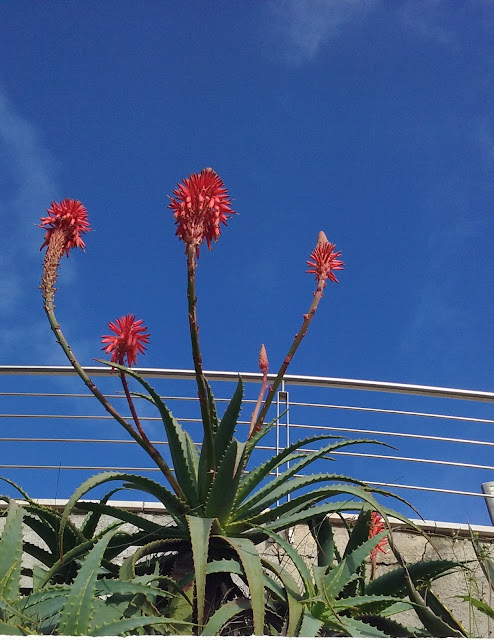
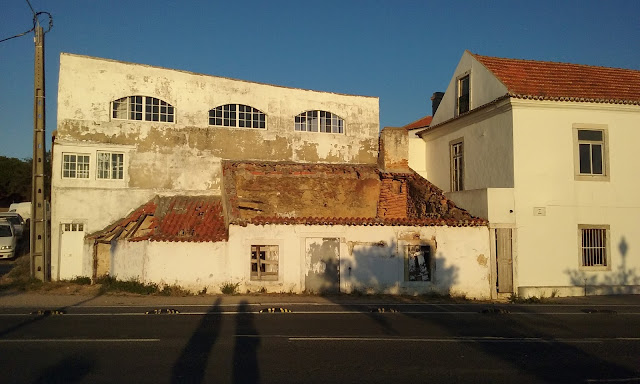
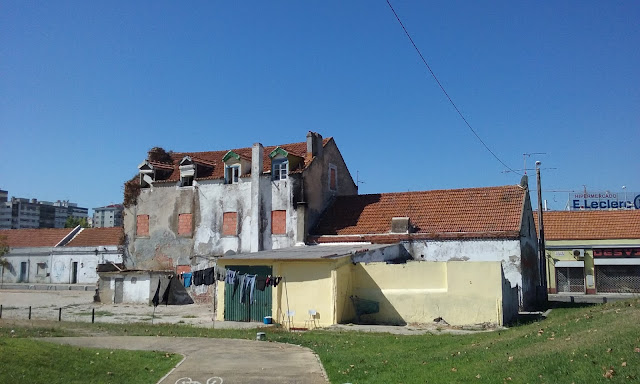
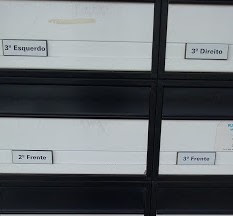


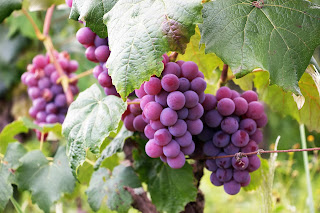
Comments
Post a Comment